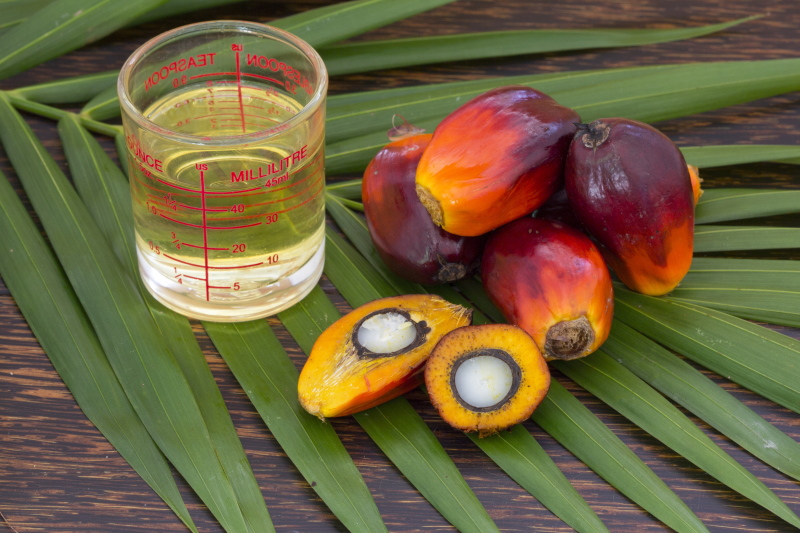Why palm oil is key for food security and sustainability

Sustainability has rightfully been becoming more mainstream in the public’s consciousness in recent years. This is in response to mankind facing ever greater climate-related challenges.
Among the main knock-on concerns associated with a worsening climate is its implications on our food security. Put simply, the United Nations estimates that by 2050, the world must feed two billion more people, when food demand will be 56% greater than in 2010.
Accordingly, the United Nations has set ending hunger, attaining food security, achieving improved nutrition, and promoting sustainable agriculture as the second of its 17 Sustainable Development Goals (SDGs) for the year 2030.
There are, however, obstacles to surmount in our pursuit to attain food security. Chief among them would be the diminishing availability of already scarce arable land. To illustrate, arable land per capita a century ago was 0.75 hectares, in 2005 it was 0.23 hectares, and this is projected to decline further to 0.19 in 2030.
What this means is that we will be needing more productive crops to feed an ever-increasing number of mouths. Herein, there is room for palm oil to contribute to both the food security and sustainability agenda.
For example, oil palm, being the most efficient oil-bearing crop on earth, only takes up about 0.6% of the world’s agricultural land use to produce 35.5% of global vegetable oil output. If we were to substitute palm oil for vegetable oils such as sunflower, rapeseed, and soy, we would need between 7 to 9 times more land to produce the same amount of oil that oil palm can yield in one hectare. On top of that, oil palm is a perennial crop, thus it does not need to be replanted following harvest, of which it can continue to do for more than 25 years.
This highlights how palm oil is better suited to address the growing demand associated with food security, climate change, scarcity of arable land, and a growing population.
In calling out the elephant (or in this case orangutan) in the room-sustainability-we must take into account the strides that the palm oil regulators and industry have been making towards ensuring its products, to make it more sustainable over the past few years.
Since 1 January 2020, Malaysia has made it compulsory for all palm oil plantations to be Malaysian Sustainable Palm Oil (MSPO) certified. To date, 98% of palm oil cultivation in the country have been independently audited and received MSPO certification.
Demonstrating the government’s commitment towards further and continuous improvement of the industry’s sustainability, the MSPO standards were revised upwards in 2022. Today, the objectives of MSPO certification include (1) management commitment and responsibility; (2) transparency; (3) compliance with legal and other requirements; (4) responsibility to social, health, safety, and employment conditions; and (5) environment, natural resources, biodiversity and ecosystem services.
This update also better aligns MSPO certification with the global demand for sustainability. Among others, the updated MSPO now includes the three elements of economic cycle, forced labour, and placement of plantation workers, and a commitment to “no deforestation, no peat development, and no exploitation”. Importantly, the MSPO 2022 included protocol 29 of the International Labour Organisation which is an indicator for labour rights.
Taken together, these will help address issues related to deforestation, climate change, and social-related issues such as employment and working conditions, and child and forced labour.
Beyond that and to further highlight the commitment towards sustainability, Malaysia is limiting the total oil palm cultivated area at 6.5 million hectares, will ban the conversion of permanent forest reserve areas for oil palm cultivation, and will not allow new plantings in peatland areas.
Ultimately, what does this mean for you, the consumer? The WWF recommends that “the best thing we can do is support sustainable palm oil and avoid boycotts, since we know substitutions with other vegetable oils can lead to even further environmental and social harm”.
So, if sustainability matters to you, choose certified-sustainable palm oil.
Read also
Wheat in Southern Brazil Impacted by Dry Weather and Frosts
Oilseed Industry. Leaders and Strategies in the Times of a Great Change
Black Sea & Danube Region: Oilseed and Vegoil Markets Within Ongoing Transfor...
Serbia. The drought will cause extremely high losses for farmers this year
2023/24 Safrinha Corn in Brazil 91% Harvested
Write to us
Our manager will contact you soon



